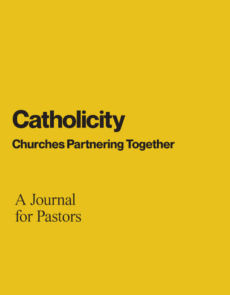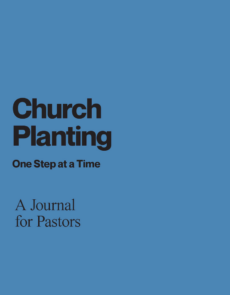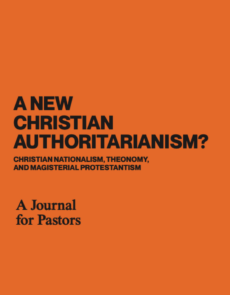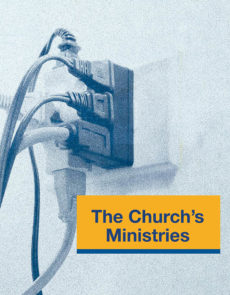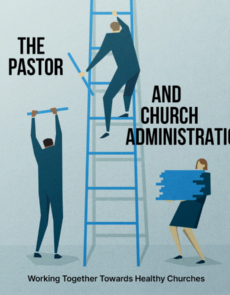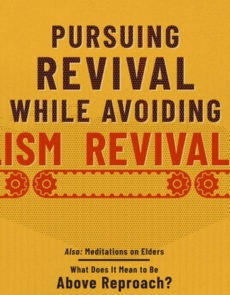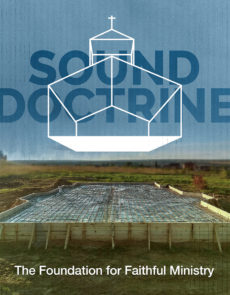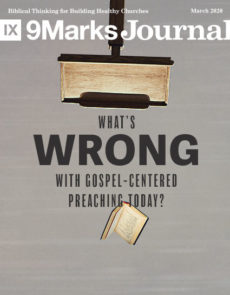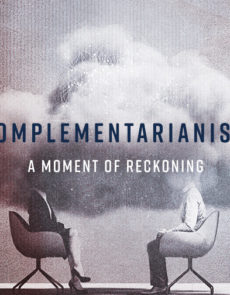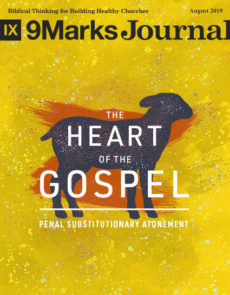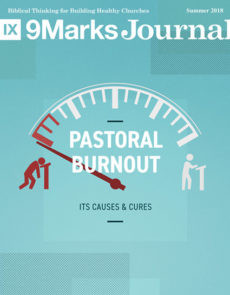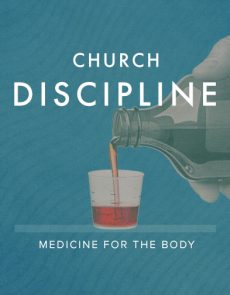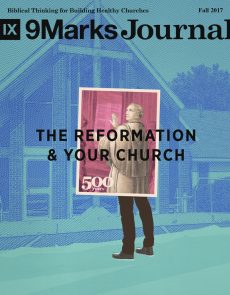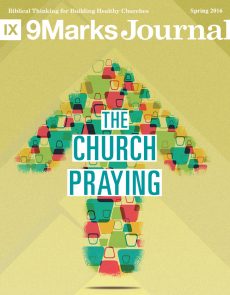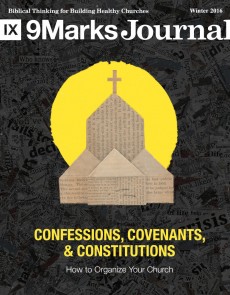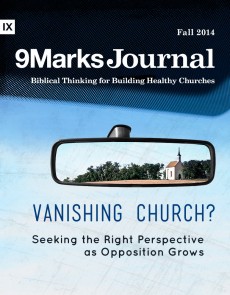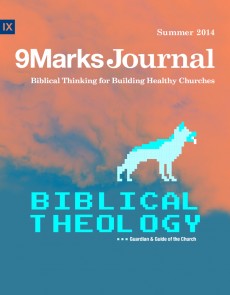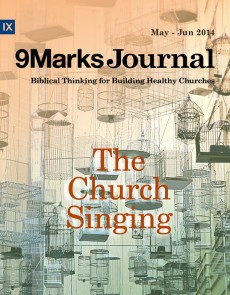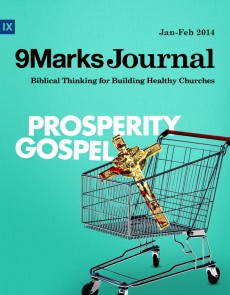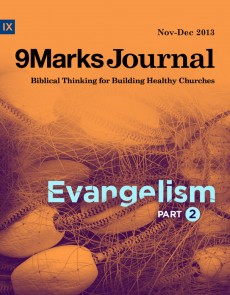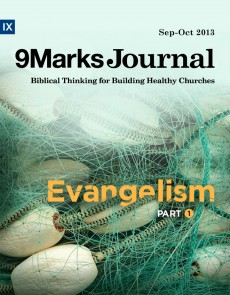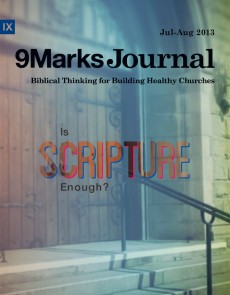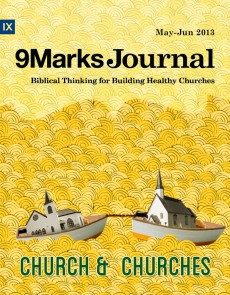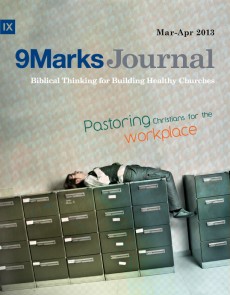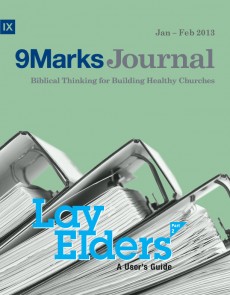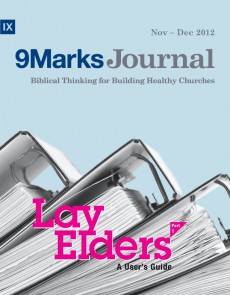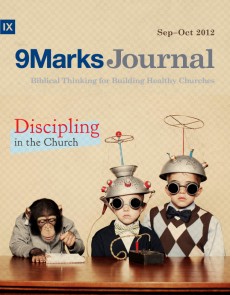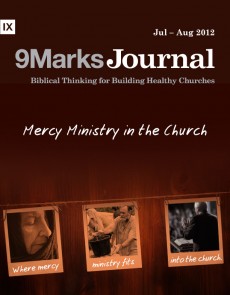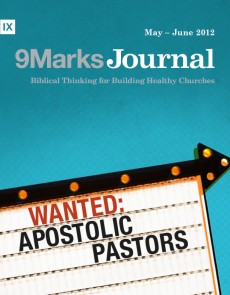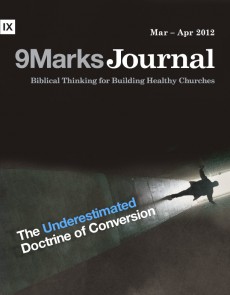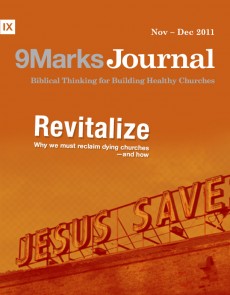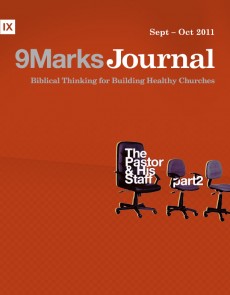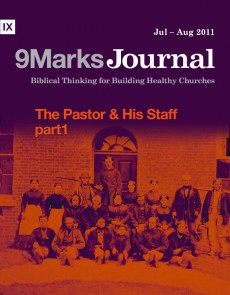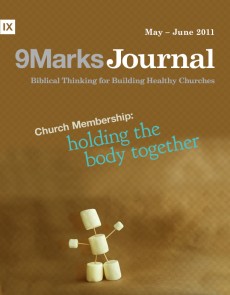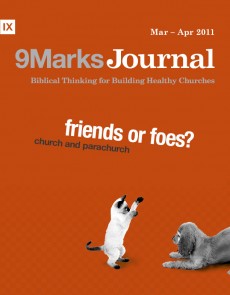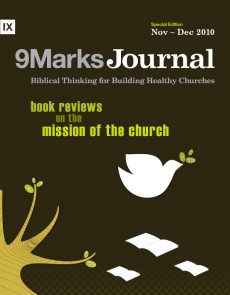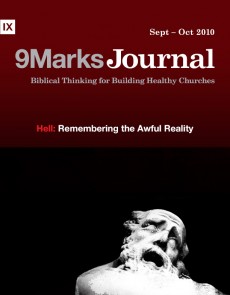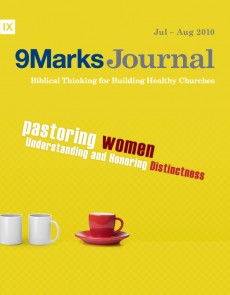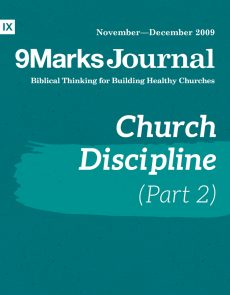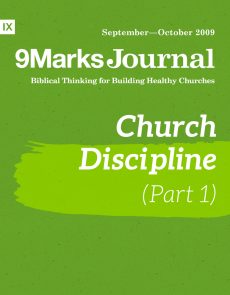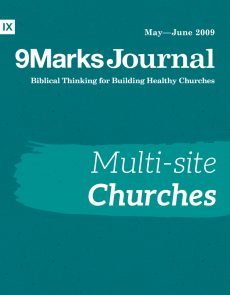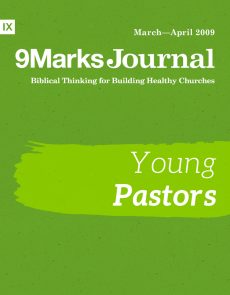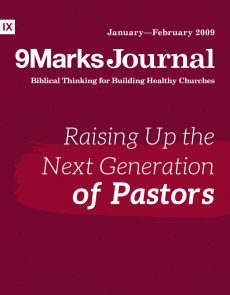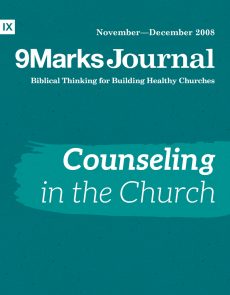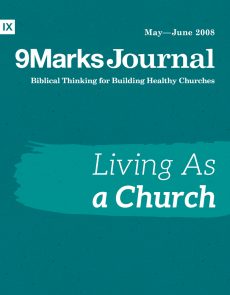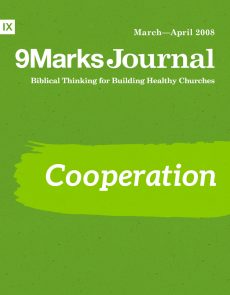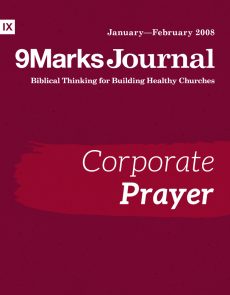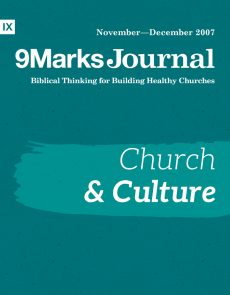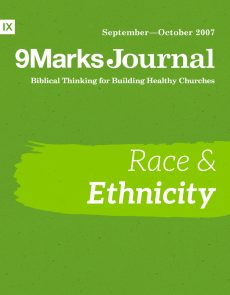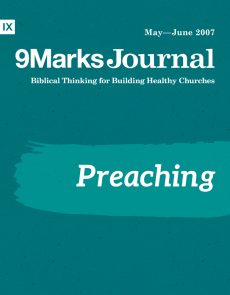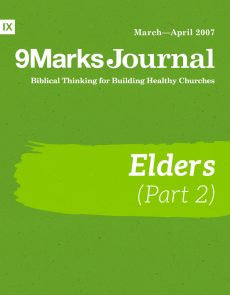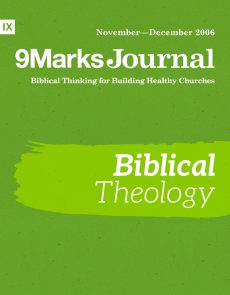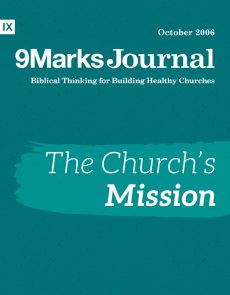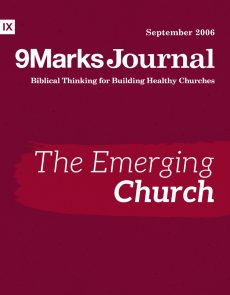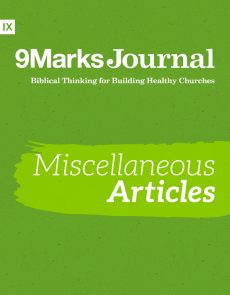Revival & Revivalism Then

Six Marks of Revivalism
By Andrew Ballitch | 9Marks Journal: Pursuing Revival While Avoiding Revivalism | 06.14.2022This article offers an introduction to revivalism. In short, it persists on a host of wrong assumptions and faulty premises. Do you see any of these marks today?

What Can We Learn from Charles Spurgeon and the New York Revival of 1858?
By Geoff Chang | 9Marks Journal: Pursuing Revival While Avoiding Revivalism | 06.14.2022What did Spurgeon want his people to understand about God’s work in revival?

“Finney with a Twist”: Elder Jacob Knapp and the Origins of Baptist Revivalism
By Caleb Morell | 9Marks Journal: Pursuing Revival While Avoiding Revivalism | 06.14.2022Pastors need to understand that a change occurred among American Baptists in the nineteenth century. This change has shaped our intuitions about conversion, membership, baptism, and what it means to practice regenerate church membership.

Jonathan Edwards, Revival, and the Necessary Means of Prayer
By Mark Rogers | 9Marks Journal: Pursuing Revival While Avoiding Revivalism | 06.14.2022Why not gather with a few other pastors in your area once a month or once per quarter to pray for God to send revival? He has answered those kinds of prayers before.
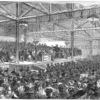
Revival Comes to Washington: An Analysis of the 1876 Revival in the Nation’s Capital
By Caleb Morell | 9Marks Journal: Pursuing Revival While Avoiding Revivalism | 06.14.2022In 1876, Washington churches partnered together to host a 105-day-long revival meeting in the National Capital. This event illustrates the extent to which modern revivalism impacted American evangelicalism.

Forgotten, Real Revivals of the Second Great Awakening
By Mark Rogers | 9Marks Journal: Pursuing Revival While Avoiding Revivalism | 06.14.2022By naming the entire Second Great Awakening a result of man-made revivalism, we fail to recognize many examples of true revival between 1798 and 1820 that we can rejoice in and learn from.
Revival & Revivalism Now

Pentecost: An Earthquake with Ongoing Tremors
By Sinclair Ferguson | 9Marks Journal: Pursuing Revival While Avoiding Revivalism | 06.14.2022We might say that revival is the unstopping of the pent-up energies of the Spirit of God breaking down the dams which have been erected against his convicting and converting ministry in whole communities of individuals, as happened at Pentecost and in the “awakenings” which have followed.

Don’t Walk the Aisle, Carry Your Cross
By Ben Lacey | 9Marks Journal: Pursuing Revival While Avoiding Revivalism | 06.14.2022How many non-Christians sit in your pews every Sunday, hardened in their unbelief because they’ve been given false assurance?

Can You Reverse Engineer Revival?
By Sean DeMars | 9Marks Journal: Pursuing Revival While Avoiding Revivalism | 06.14.2022We must labor to excel in establishing the necessary conditions for revival, all while remembering that our triune God has predetermined the sufficient conditions for revival in eternity past.

How Strong Trellises Promote Strong Vines
By Paul Alexander | 9Marks Journal: Pursuing Revival While Avoiding Revivalism | 06.14.2022If you drape your vine over a simple trellis with structural integrity, then its fruit is far more likely to mature without bruising.

Pray for Revival—in the Other Guy’s Church
By Andy Johnson | 9Marks Journal: Pursuing Revival While Avoiding Revivalism | 06.14.2022God has a big plan for his whole world, and God will accomplish his work in the world. Sometimes he may do that through us. Sometimes he may do it through the church down the street.
Revivalism and Ministry

How Movements Can Undermine Churches and Hurt Their Own Cause
By Jonathan Leeman | 9Marks Journal: Pursuing Revival While Avoiding Revivalism | 06.14.2022What pastors, missionaries, and campus leaders need is a vision for church-driven ministry, not movement-driven ministry. This is how we build for the long-run, not for the sprint.

Why Revivalism Causes Pastors to Burn Out and Job-Hop
By Phil Newton | 9Marks Journal: Pursuing Revival While Avoiding Revivalism | 06.14.2022Understanding dependence on the Word and Spirit would have reoriented my entire approach to and practice of pastoral ministry. But instead, I struggled to make sense of the man-centered revivalism I’d been taught.

The Revival We Need and the Unregenerate Church Members We Have
By Jim Elliff | 9Marks Journal: Pursuing Revival While Avoiding Revivalism | 06.14.2022To illustrate our problem, in 2018, one beloved historic Southern Baptist Church whose name most Baptists would recognize claimed 30,000 members and an average of 6,801 attending.

Revivalism on the Mission Field
By Scott Logsdon | 9Marks Journal: Pursuing Revival While Avoiding Revivalism | 06.14.2022Revivalism’s bold promises remain alluring to missionaries. But let the missionary beware.

Revival and Revivalism in Youth Ministry
By Mike McGarry | 9Marks Journal: Pursuing Revival While Avoiding Revivalism | 06.14.2022Passing the faith from generation to generation is both simpler and more difficult than revivalists prophesy.

The Worship Set: Today’s Sawdust Trail
By Drew Hodge | 9Marks Journal: Pursuing Revival While Avoiding Revivalism | 06.14.2022If God really doesn’t care what we do when we gather and it’s up to us to design a “worship experience,” then everything is on the table.
Elder Meditation:

Is “Above Reproach” Its Own Qualification, or a Qualification of the All the Others?
By Jeffrey Jeffson | 9Marks Journal: Pursuing Revival While Avoiding Revivalism | 06.14.2022Does Paul’s requirement that an elder be “above reproach” act as its own qualification, or does Paul mean for it to qualify all the other qualifications?

What Does Being “Above Reproach” Mean?
By Paul Alexander | 9Marks Journal: Pursuing Revival While Avoiding Revivalism | 06.14.2022To be above reproach is, arguably, the most general of all the elder qualifications, so it has to be defined more generally.

How “Above Reproach” Lay Elders Saved My Ministry
By Gary Kirst | 9Marks Journal: Pursuing Revival While Avoiding Revivalism | 06.14.2022These men, though imperfect, were above reproach. I knew that. And now they were unified in confronting me for my foolish pride.

Why Is Being “Above Reproach” Necessary in Hard Times?
By David Doran Jr. | 9Marks Journal: Pursuing Revival While Avoiding Revivalism | 06.14.2022By God’s grace, you want shepherds who live with such obvious Spirit-dependence and fruit that false accusations fall flat.

Why Does a Pastor Being “Above Reproach” Matter?
By Peter Hess | 9Marks Journal: Pursuing Revival While Avoiding Revivalism | 06.14.2022In the church of Jesus Christ, character matters for leadership. No character, no qualification to lead.
Book Reviews

Book Review: The Heart of the Gospel: A.B. Simpson, the Fourfold Gospel, and Late Nineteenth-Century Evangelical Theology, by Bernie A. Van De Walle
By Kevin Niebuhr | 9Marks Journal: Pursuing Revival While Avoiding Revivalism | 06.14.2022While I’m not an admirer of all the positions and practices Simpson had throughout his lifetime, I am grateful for Van De Walle’s scholarly work.
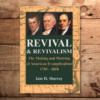
Book Review: Revival and Revivalism: The Making and Marring of American Evangelicalism, 1750-1858, by Iain Murray
By Bobby Jamieson | 9Marks Journal: Pursuing Revival While Avoiding Revivalism | 06.14.2022I commend Iain Murray’s classic book to all present and aspiring church leaders, and to any Christian who likes to ask, “How did we get here?”

Free Download
PDF, ePub, and Kindle files will be sent to this email address. As part of our community, you will receive content & communication from 9Marks. You may unsubscribe at any time.
Support 9Marks
Our work is possible by the generosity of our readers. Give Today










